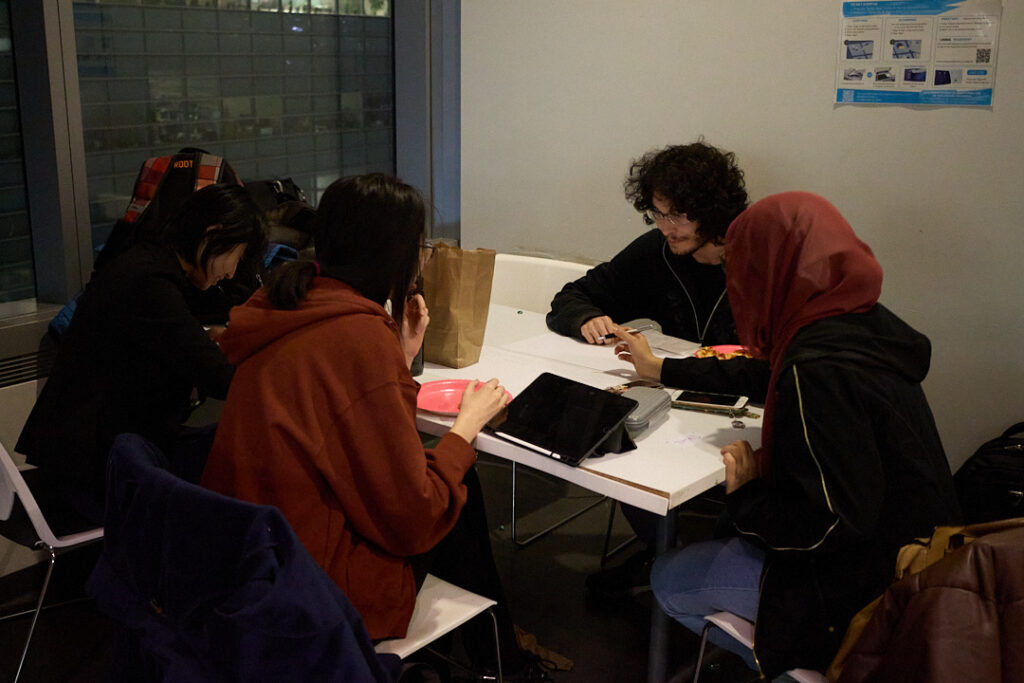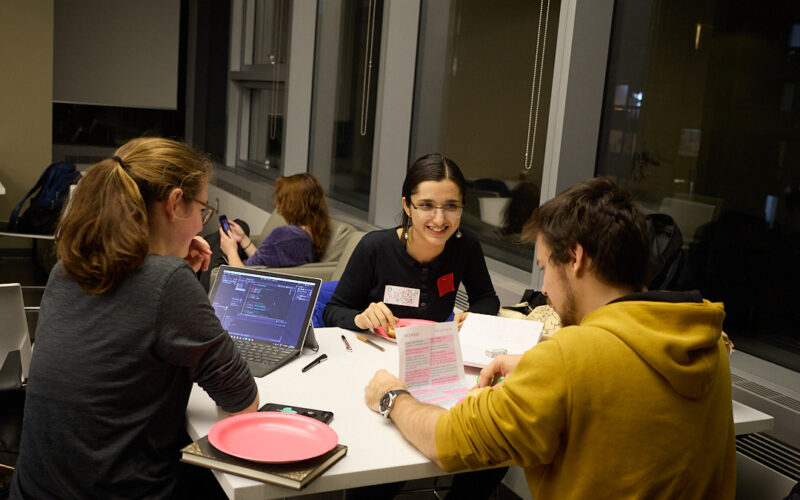Participants in Concordia’s Game Development Club (GCD) Game Jam spent last weekend making their dream games.
On Nov. 3, gaming enthusiasts from a variety of skill sets gathered at Concordia University to compete in the once-per-semester game development competition dubbed the Game Jam.
Hosted by Concordia’s Game Development Club (GCD), the event opens the opportunity for aspiring game creators from in and out of the university to demonstrate their skills under a strict 48-hour time limit. Either solo or with a team, Game Jam participants create a video game from scratch using their unique set of skills and expertise.
Maxx Freund, the president of the GCD and fourth-year software engineering student at Concordia, joined the club two years ago, following his interest in gaming and technology. “I joined the GCD knowing nothing about how to make a game and I made a really bad game, but I learned how to do it,” he said. “That was cool, because we had a product that we could be proud of.”
Three Game Jam iterations later, he’s taken on a role akin to a curator for the event. Freund broke down the creative process behind most teams; ideally, each team’s development process requires for artists to design concepts and characters, for programmers to map out controls, and for other roles to tackle aspects such as music design and game level design.
Each Game Jam offers challenges for would-be developers to complete, including a theme they must base their creation on. Chosen by the club’s executive team, the theme offers “a lot of creative freedom,” according to Freund and may be interpreted differently by each team.

This semester’s featured theme was “the space between.” Submissions ranged from traversing alternate realities to surviving alone on a desolate spaceship.
“They’re the best way to get that experience on how to build a game in such a short amount of time,” said Timothee Lafont, a teacher in game design at LaSalle College. “It pushes you to come up with clever ideas to come up with an engaging game.”
Using Unreal Engine 5, a game development software, Lafont’s team planned to make a puzzle game that would warp around the player as time passed. Along with his team of concept artists, Lafont aimed to make the game visually remarkable with unique level and character design. He was confident in his team’s ability to accomplish the task before the time limit.
Another team, headed by Karin Etemadi, a student in cell molecular biology at Concordia, started plans for a game set in space where the player must survive monsters in a desolate spaceship. A first-timer, Etemadi said she did not know what challenges her team, “the Saltshakers,” would face, but they aimed to produce a working model nonetheless.
Both teams successfully submitted their work in time for the event’s closing ceremony on Nov. 5 at Concordia’s John Molson School of Business. The results will be determined in the coming weeks.




